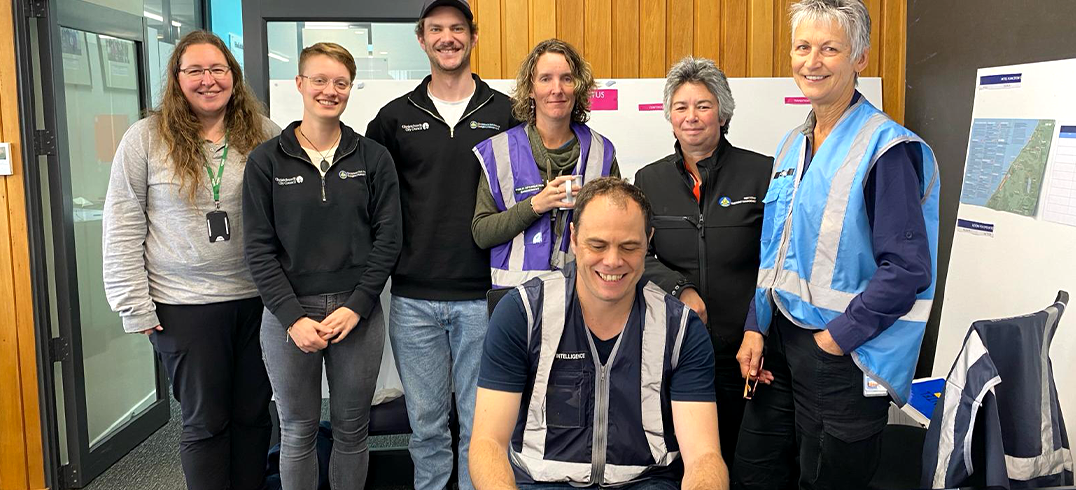Peter, our Intelligence Manager plays a key role in the Emergency Operations Centre (EOC), overseeing the collection, verification, and analysis of information during emergencies.

This vital role ensures the team has the situational awareness needed to guide decisions and keep the response on track.
Whether it's managing a flood of data or making sense of complex situations under pressure, Peter’s ability to communicate clearly and provide accurate intelligence helps keep the community safe and the response effective.
- What is the role of an Intelligence Manager during a civil defence emergency?
The job is to manage the team that is making sense of the flood (pun intended) of information flowing into an emergency operations centre (EOC), ultimately providing the situational awareness and predictions on how an emergency might evolve. This guides the rest of the EOC for all the work that they do. It is vitally important to check and verify information that comes in, especially when critical decisions are riding on it.
- What led you to become an Intelligence Manager and how did you prepare for this role?
I was attracted to the intelligence function as it suits my skillsets of broad general knowledge and my desire to assist communities during a time of need. To prepare for the role, I train regularly and try to deploy to other districts during events to keep my skills current, and to ensure I am adaptable to unknown situations.
- Can you describe a memorable or challenging emergency situation you’ve been involved in and how you managed it?
During a recent flood event, in another district, I can recall the stream of information from the river flow gauges deciding to fail at the time the flood was peaking. This made for a tense time because if my previous predictions of the event development were wrong, it would take a lot longer to figure that out, eating into evacuation time if a town needed to evacuate. It turned out that the intelligence team I led had predicted it correctly, but it certainly was a tense time until the data came back online.
- What key qualities or skills do you think are essential for an Intelligence Manager during a civil defence emergency?
You need an intuitive ability to figure out the development of a situation from a substantial volume of information, to know how to get more information when you don’t have it and, above all, clearly and calmly communicate that to the rest of the team managing the emergency. Intelligence is verified information, and intelligence communicated clearly builds confidence amongst everyone dealing with the response.
- How do you ensure effective coordination and communication among different teams during an emergency?
The most important aspect for me is seeing the different coloured jackets of the various teams within an EOC circulating widely across the other teams, and sharing information across functions. Intelligence managers can ensure this occurs by having their teams initiate this.
- What advice would you give to the community about preparing for and responding to emergencies?
Emergencies are likely to become more frequent. Whilst there is a good corps of people available to manage events on a wide and small scale, preparedness begins at home. Every home, and every community should have the basics of a plan on how to respond at an individual, family, and community level to floods, fires, earthquakes, and potentially, cyber-attacks.
| Stay connected! Sign up for our newsletter to get exclusive updates delivered straight to your inbox. Subscribe today! |
|---|
